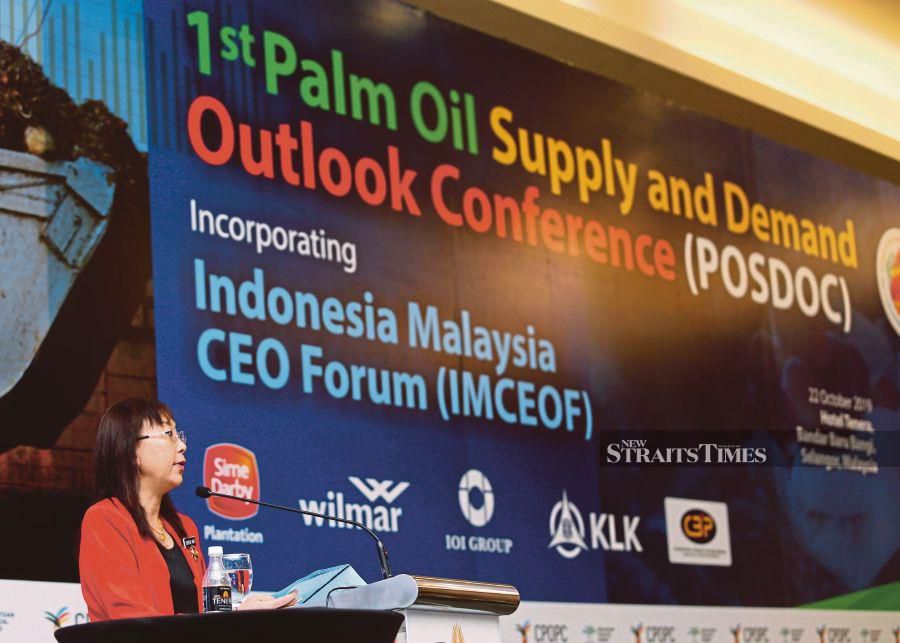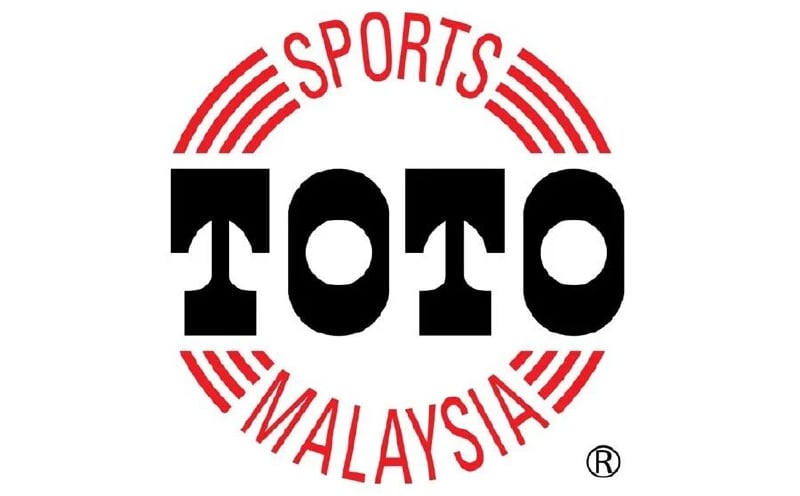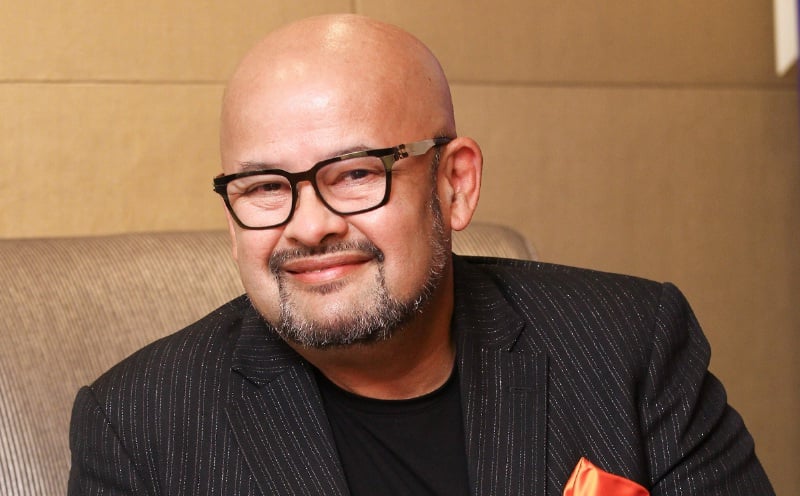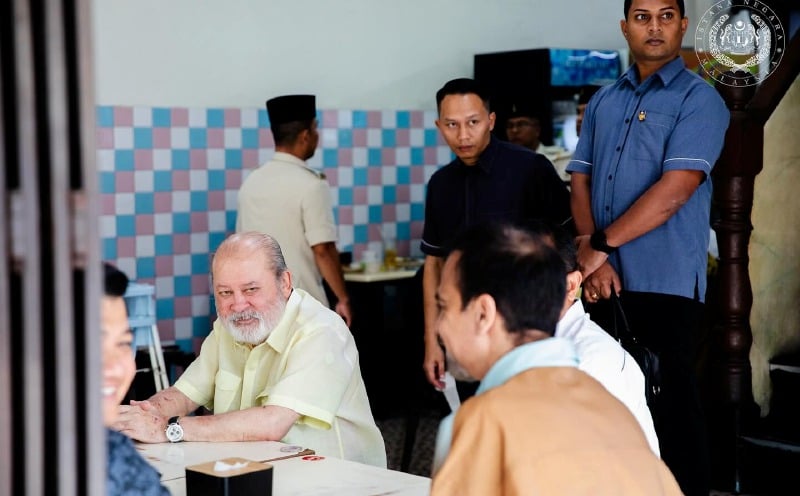BANGI: THE ball is now in India government’s court over its plans to boycott palm oil products from Malaysia.
The governments of Malaysia and Indonesia had not received any official stance from the Indian government about any change in tariffs on palm oil imports, senior officials of both countries said.
On Monday, India’s Solvent Extractors’ Association president Atul Chaturvedi reportedly advised its members not to buy palm oil products from Malaysia to protest against Prime Minister Tun Dr Mahathir Mohamad’s remarks on the Kashmir conflict.
Dr Mahathir, in his speech at the United Nations General Assembly, last month, said despite the UN resolution on Jammu and Kashmir, the region had been invaded and occupied.
He called on India to work with Pakistan to resolve the problem.
He was responding to the Indian government’s move on August 5, 2019, to revoke Jammu and Kashmir’s legally autonomous status and impose many unprecedented security measures, including cutting off Internet and phone services, to prevent protests in the region.

His comments sparked angry reactions on the Internet, with Indian social media users calling for #BoycottMalaysia.
Yesterday, Dr Mahathir said Malaysia preferred a diplomatic approach if the Indian government decided to restrict purchase of Malaysian palm oil.
Malaysia has the right to seek legal redress if India were to breach the Malaysia–India Comprehensive Economic Cooperation Agreement (MICECA).
When asked if Malaysia would report India to the World Trade Organisation (WTO), Dr Mahathir reportedly answered: “At the moment, no.”
Malaysia’s Primary Industries Minister Teresa Kok concurred with Dr Mahathir, saying India’s vegetable oils traders’ plan to cut palm oil purchases from Malaysia could not be taken unilaterally.
“To date, there is no communication from the Indian government to Malaysia about any change in palm oil purchase with regard to the agreed terms under MICECA.”
Back in 2010, India signed MICECA, of which the effective duty on products shipped from Malaysia into India would not be more than a mutually agreed threshold limit.
Under the MICECA, import duty on crude palm oil and refined palm oil shipped from Malaysia is cut by four per cent and nine per cent, to 40 per cent and 45 per cent effective January 1, this year.
Kok, who is the Council of Palm Oil Producing Countries (CPOPC) chairman, officiated the opening of the Palm Oil Supply and Demand Outlook Conference here yesterday.
CPOPC, established in 2015 as a common government-to-government platform, is tasked to promote global palm oil trade and neutralise trade barriers.
Also present were Indonesia’s Deputy Minister for Coordinating Economic Affairs Musdhalifah Machmud, CPOPC executive director Tan Sri Yusof Basiron, Indonesia Palm Oil Association president Joko Supriyono, Malaysian Palm Oil Council chairman Datuk Lee Yeow Chor, Malaysian Palm Oil Association chairman Datuk Franki Anthony Dass and Malaysian Palm Oil Certification Council chief executive officer Chew Jit Seng.
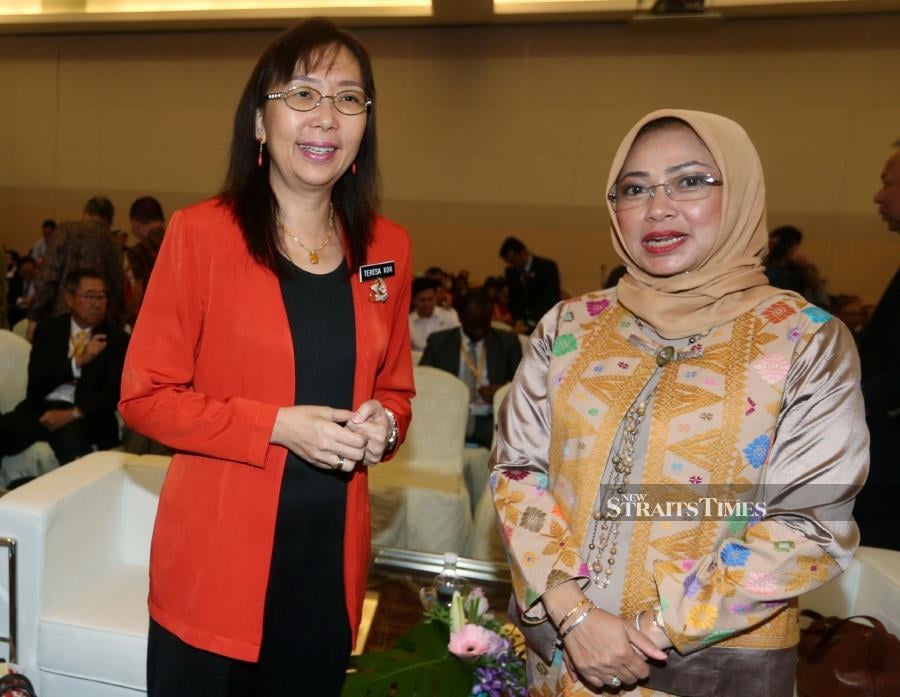
When asked on bilateral trade between Indonesia and India, Musdhalifah said: “As far as government-to-government communication is concerned, Indonesia didn’t receive any request from India for any change in tariffs on palm oil.”
India, the world’s largest vegetable oil importer, relies on Indonesia and Malaysia for its palm oil supplies.
Indonesia and Malaysia are the world’s top two producers, supplying some 65 million tonnes of palm oil per year to the world.
Musdhalifah said: “India’s vegetable oil traders’ recent statement on their planned change in palm oil purchases are business-to-business arrangements.
“My role in the government is to look into policies to boost global demand for palm oil that has seen loss of market share to other vegetable oils.”
India is a significant buyer of Malaysian palm oil. In the first nine months of the year, Malaysian Palm Oil Board’s data revealed Malaysia shipped 3.91 million tonnes of palm oil to India.
Last year, India bought RM6.84 billion worth of palm oil and palm-based products, which made up 10 per cent of total shipment of the kitchen staple, out of Malaysian shores.
Kok and Musdhalifah reiterated Indonesia and Malaysia’s commitment to challenge the European Union (EU) Delegated Act through WTO’s Dispute Settlement Body and other possible avenues.
“We regularly discuss what we communicate with the EU in terms of WTO regulations, but in terms of going to court, we think it is best for both countries to go separately,” said Musdhalifah.
“If the lawyers are working in two countries, they have to come to Malaysia and Indonesia to discuss the issue. So, we are communicating with lawyers and planning to go to WTO as soon as possible.”
On June 10, 2019, the EU Parliament passed the Delegated Act to restrict and ban palm oil biofuel altogether by 2030.
The Delegated Act is discriminatory against the economies of developing nations in Southeast Asia, Africa and Latin America, which produce palm oil.
The EU Parliament’s passing of the Delegated Act is seen as disrespecting global trading norms and country sovereignty as it ignores Asean government-driven certification schemes, such as the Indonesian Sustainable Palm Oil and Malaysian Sustainable Palm Oil.


